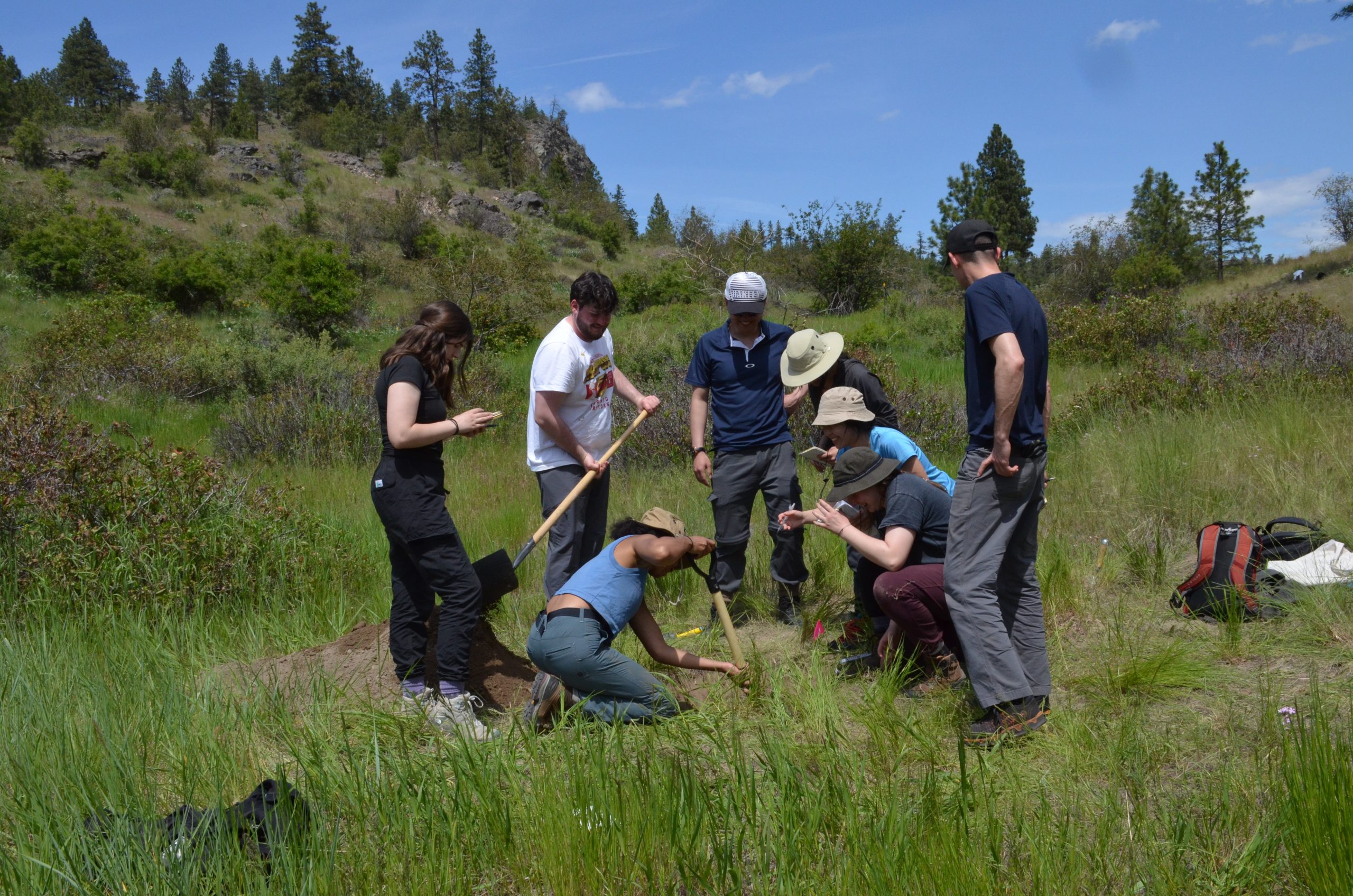Brett Eaton
Education
University of British Columbia, 2004, PhD
McGill University, 1999, MSc
University of British Columbia, 1995, BSc, Honours
About
I am a fluvial geomorphologist interested in how rivers respond to land use and environmental changes. My research group is conducting laboratory experiments and field studies as part of a larger effort to improve our understanding of stream channel (in)stability, fish habitat and bed material transport. In particular, we are focussing on the influence of disturbances such as forest fire on channel morphodynamics, the effect of large wood on sediment transport dynamics and the influence of hydropower generation on stream channel processes. I am also interested in the broader set of processes controlling landscape characteristics.
Teaching
Publications
2022
Leenman, A. and Eaton, B. 2022. Alluvial fan sensitivity to fluctuating water and sediment supply. AGU Fall Meeting Abstracts 2022: EP55A-03.
Adams, D. L. and B. C. Eaton. Process feedbacks that control transport capacity at formative flows in laterally-constrained gravel-bed rivers: a laboratory study. Authorea Preprints. doi: 10.1002/essoar.10509088.1
Vincent, L. Eaton, B. C. and A. Leenman. 2022. The importance of inter-flood periods on alluvial fan morphology, hazards and reworking. Authorea Preprints. doi: 10.1002/essoar.10506328.1
Booker, W. and B. Eaton. 2022. Morphodynamic styles: a novel index of gravel-bed river behaviour. Authorea Preprints
Booker, W. and B. Eaton. 2020. Morphodynamic styles: characterising the behaviour of gravel-bed rivers using a novel, quantitative index. Earth Surface Dynamics 10 (2): 247-260. doi: https://doi.org/10.5194/esurf-10-247-2022
Vincent, L. T. Eaton, B. Leenman, A. and M. Jakob. 2022. Secondary Geomorphic Processes and Their Influence on Alluvial Fan Morphology, Channel Behavior and Flood Hazards. Journal of Geophysical Research: Earth Surface 127 (2).
Leenman, A. S. Eaton, B. C. and L. G. MacKenzie. Floods on alluvial fans: implications for reworking rates, morphology and fan hazards. Journal of Geophysical Research: Earth Surface 127 (2).
Eaton, B. C. and Davidson, S. L. Hydraulic geometry: empirical investigations and theoretical approaches. Academic Press 461-479.
2021
Leenman, A. and Eaton, B. C. 2021. Mechanisms for avulsion on alluvial fans: Insights from high-frequency topographic data. Earth Surface Processes and Landforms 46 (6): 1111-1127. doi: https://doi.org/10.1002/esp.5059
2020
Eaton, B. C., Mackenzie, L. G. and W. H. Booker. 2020. Channel stability in steep gravel–cobble streams is controlled by the coarse tail of the bed material distribution. Earth Surface Processes and Landforms 45 (14): 3639-3652. doi: https://doi.org/10.1002/esp.4994
Beagley, R. Davies, T. and Eaton, B. C. 2020. Past, present and future behaviour of the Waiho River, Westland, New Zealand: a new perspective. Journal of Hydrology (New Zealand) 59(1): 41-61.
Naman, S. M. Rosenfeld, J. S. Jordison, E., Kuzyk, M. and B. C. Eaton. 2020. Exploitation of Velocity Gradients by SympatricStream Salmonids: Basic Insights and Implications for Instream Flow Management. North American Journal of Fisheries Management 40(2): 320-329. doi: https://doi.org/10.1002/nafm.10411
Booker, W. and Eaton, B. C. 2020. Stabilising large grains in self-forming steep channels’ Earth Surface Dynamics 8(1): 51–67. doi: 10.5194/esurf-8-51-2020
De Rego, K., Lauer, J. W., Eaton, B. C. and Hassan, M. 2020. A decadal-scale numerical model for wandering, cobble-bedded rivers subject to disturbance. Earth Surface Processes and Landforms 45(4): 912– 927. doi: https://doi.org/10.1002/esp.4784
2019
Eaton, B. C., Moore, R. D. and Mackenzie, L. G. 2019. Percentile-based grain size distribution analysis tools (GSDtools)–estimating confidence limits and hypothesis tests for comparing two samples. Earth Surface Dynamics 7(3): 789-806. doi: 10.5194/esurf-7-789-2019
Naman, S., Rosenfeld, J., Neuswanger, J. and Eaton, B. C. 2019. Comparing correlative and bioenergetics-based habitat suitability models for drift-feeding fishes. Freshwater Biology 64(9): 1613-1626. doi: https://doi.org/10.1111/fwb.13358


